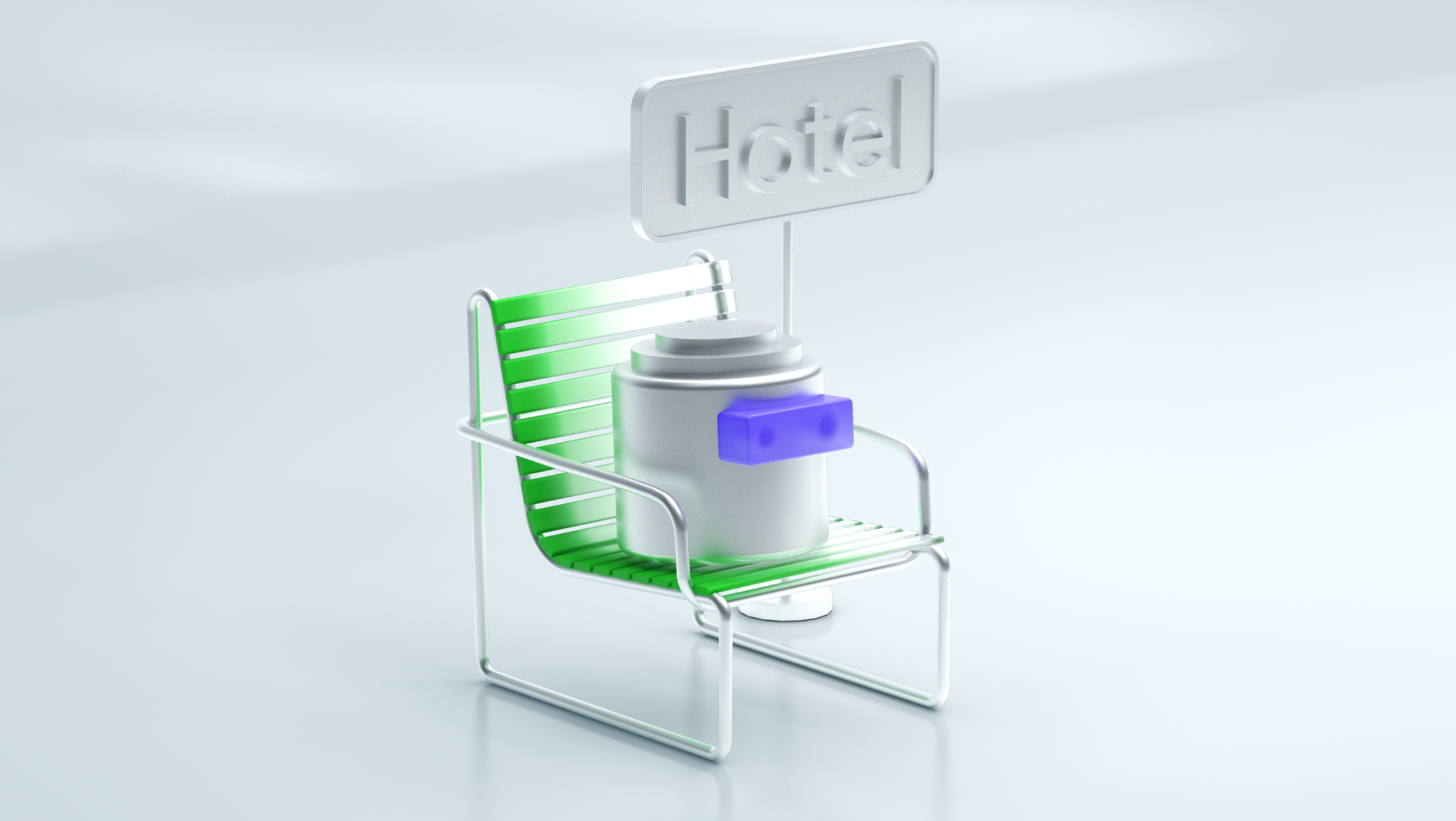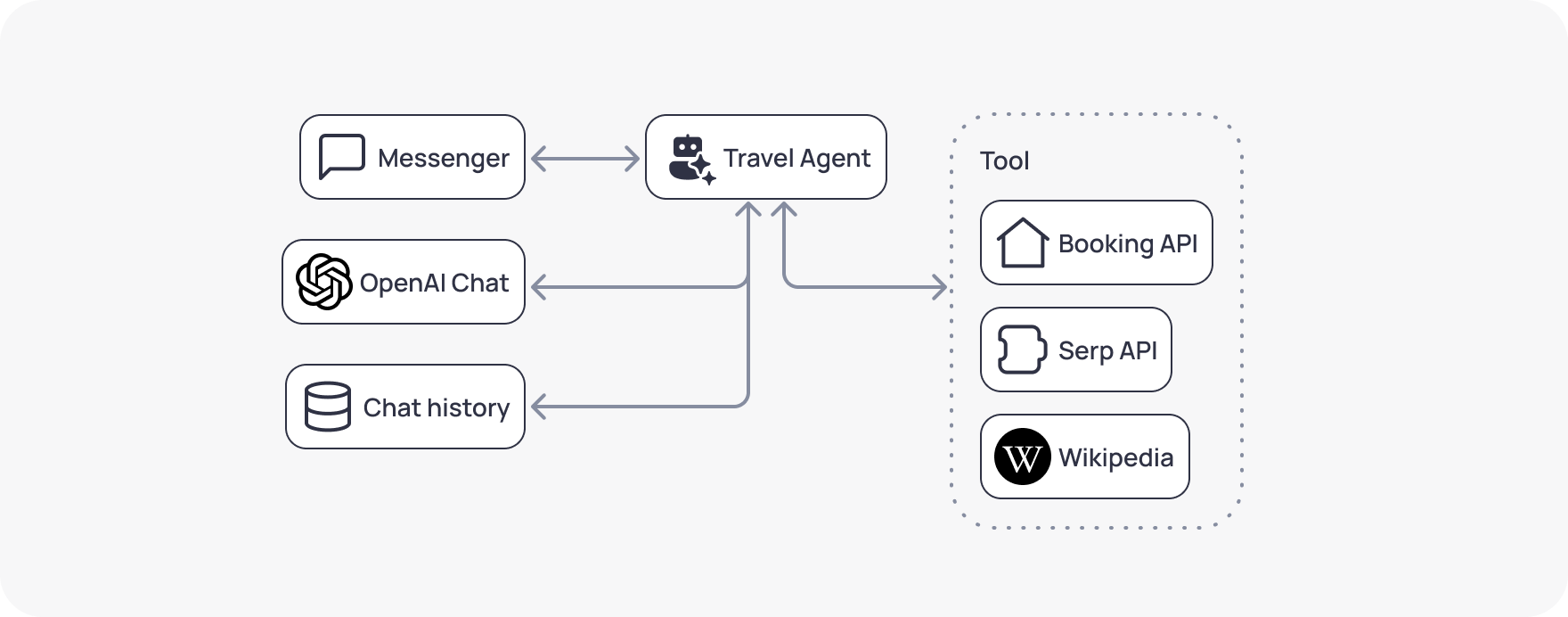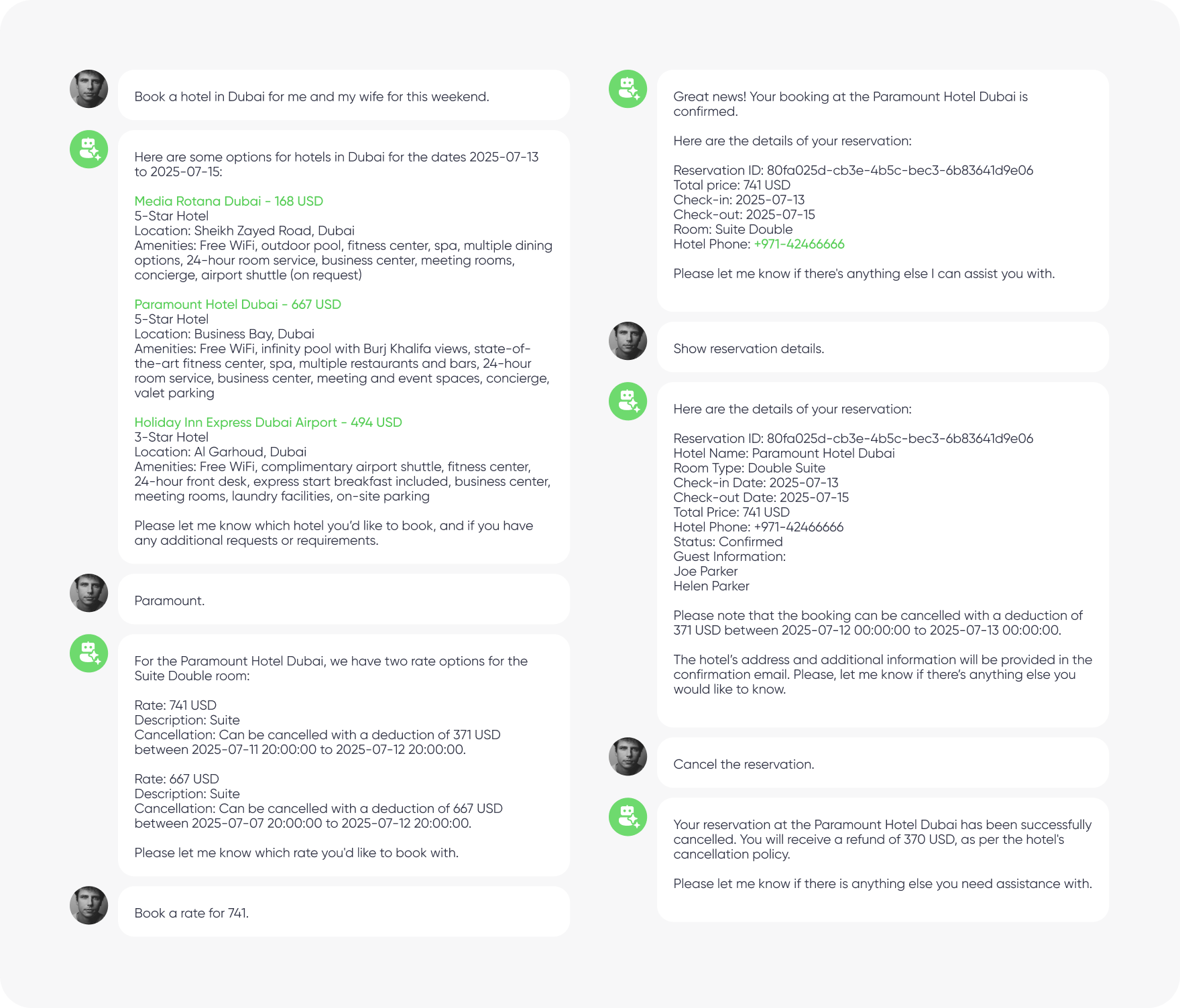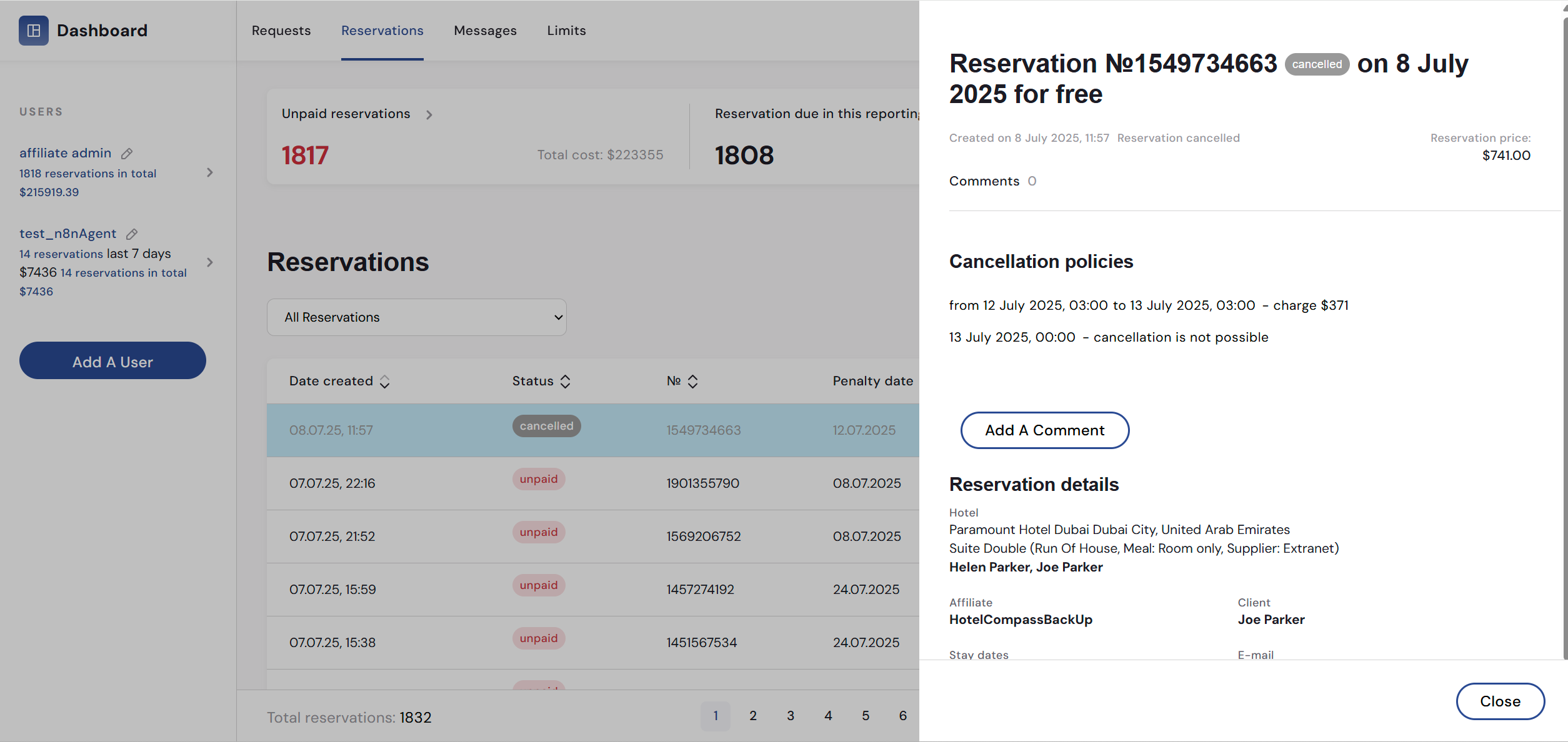How we built an AI Travel Agent that handles bookings instantly
Explore how we built a hotel-booking AI Agent that interacts with travelers through familiar messaging platforms, taps into live inventory, eliminates response delays, and frees up human agents from repetitive tasks — all while delivering fast, accurate service and laying the foundation for scalable business growth.

Challenge
A mid-size online travel agency (OTA) was feeling the strain. Their human agents were spending too much time on routine hotel bookings and simple traveler questions. Response times were slipping, accuracy was inconsistent during peak hours, and staff burnout was creeping in.
They needed a way to free up their team for complex cases and VIP customers, while still giving every traveler a smooth, fast experience.
Solution
We helped them build a custom AI Travel Agent with one clear goal: handle the simple requests reliably, so humans can focus where they’re needed most.
What the AI Agent does:
- Automates hotel searches and bookings directly via messenger: travelers can check availability, compare options and rates, and confirm bookings — all within a familiar chat interface.
- Handles FAQs and simple modifications autonomously, such as updating travel dates, confirming breakfast inclusion, or checking cancellation policies.
- Provides personalized recommendations, suggesting room upgrades or add-ons based on traveler preferences, booking history, and even loyalty program status.
- When it’s time to pay, the AI Agent sends a link to a PCI-compliant payment system, ensuring that transactions are completed safely and outside the messenger environment.
- Escalates complex issues to human agents, ensuring a smooth handoff when emotional intelligence or custom decisions are required.
- Learns and adapts over time, improving responses and suggestions through ongoing interactions, preferences, and behavior patterns.

AI Travel Agent workflow
How it works
-
Retrieval-Augmented Generation (RAG)
The AI Agent pulls real-time availability and pricing from the OTA’s Extranet. This means that instead of relying only on pre-trained AI knowledge, the Agent searches live databases to provide accurate, up-to-date information before booking.
-
External information lookup
When travelers ask for general info (e.g. destination facts or local attractions), the Agent can access external resources like Google search or Wikipedia to provide answers beyond the OTA’s internal data.
-
Multichannel support
The Agent’s architecture supports expansion to Telegram, WhatsApp, web widgets, or even voice interfaces, allowing future growth across customer-preferred channels.

Instant hotel booking via AI Travel Agent in messenger
Security note:
- To comply with privacy regulations like GDPR and CCPA, personal information (such as passport or payment details) is never processed in the messenger. Instead, the AI Agent securely redirects travelers to external systems for data input and processing.
- All API calls for bookings and data retrieval are authenticated and encrypted, ensuring customer data is protected throughout — even as the AI Agent interacts across multiple systems and messaging channels.

Part of B2B booking engine: Dashboard where OTA sees reservation details after AI Agent booking
How we built it
We created the MVP quickly and cost-effectively using the n8n no-code workflow automation platform — a perfect solution for testing new AI services in real business environments:
- Speed and cost: No-code cut development time by over 60%, saving the OTA tens of thousands of dollars upfront (in line with broader industry data showing up to 80% time savings with no-code platforms).
- Easy maintenance: After launch, the OTA’s operations team could update workflows (e.g. hotel categories, seasonal promos, or messaging tone) without involving engineers.
- Flexible integrations: n8n connected smoothly to all required systems — including the Extranet, CRM, website, and a messenger — using standard APIs. This allowed the AI Agent to operate without disrupting existing infrastructure.
- Lower project risk: By starting with a no-code prototype, we reduced both technical and financial risks. The OTA can test the Agent in the real world, gather feedback, and build internal buy-in before moving to scale.
- Future readiness: Later, this solution can easily migrate to a fully coded backend to reduce token usage (tokens are how AI platforms calculate and charge for usage — like fuel for a car). This makes the long-term model more cost-efficient and scalable.
Tech hurdles we solved
To make it all work, we also addressed two major tech challenges that often stop AI projects before they start:
- Messy supplier data: Different APIs used inconsistent formats. We harmonized these sources so the AI Agent could extract hotel info accurately.
- System silos: CRM and supplier data weren’t properly integrated. We stitched them together to give the AI Agent unified access and to ensure every action (e.g. a booking or modification) is logged back into the CRM for full visibility.
Cost breakdown
The project covered:
- No-code setup using n8n: Fast, cost-effective development framework to launch and iterate quickly.
- AI agent training: Fine-tuned to reflect the OTA’s booking logic, pricing strategy, and workflows.
- LLM selection: Choose the most cost-efficient large language model based on price-performance balance.
- System integrations: Connected the Agent with the Extranet, CRM, and supplier feeds (e.g., bed banks) for real-time availability and pricing.
- Deployment: Enabled direct user interaction via a familiar and accessible messaging platform.
Results
Within just two months of launching the AI Agent:
- 70% of repetitive booking tasks are now automated — freeing up human agents to focus on complex requests and VIP support.
- Customer wait times dropped from 10 minutes to instant, significantly improving traveler satisfaction and reducing chat abandonment.
- 24/7 automated support significantly increased efficiency and traveler satisfaction.
- Conversion rates increased by 20%, driven not only by faster replies, but by the AI Agent’s ability to complete bookings autonomously — eliminating friction and boosting traveler confidence at the moment of decision.
- No additional hires were needed, even as customer volumes grew — helping the OTA avoid staffing costs and scale efficiently.
Beyond short-term wins, the AI Agent has become a trusted digital team member. By starting with a no-code MVP, the OTA validated its impact fast, unlocked immediate savings, and laid the foundation for confident, scalable AI growth.
Perspectives
While the initial focus was on core booking flows, the solution was architected for customization and long-term flexibility. The AI Agent can be easily adapted to match brand tone, support multilingual experiences, surface tailored offers, and evolve its UX — giving the OTA the tools to continually refine the customer journey as the business grows.
Let’s talk about building your AI Travel Agent. Get a quick, personalized estimate and see what it would take to bring it to life.















